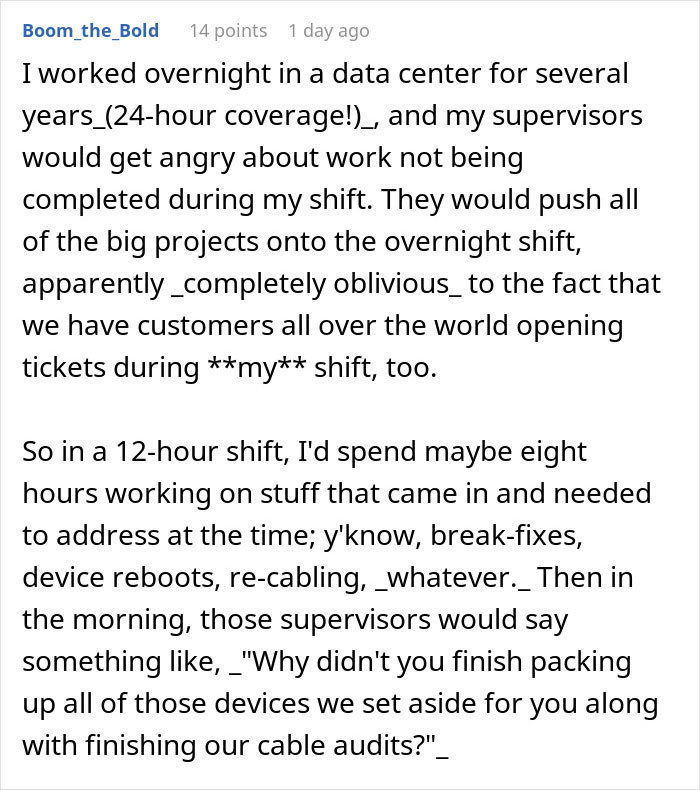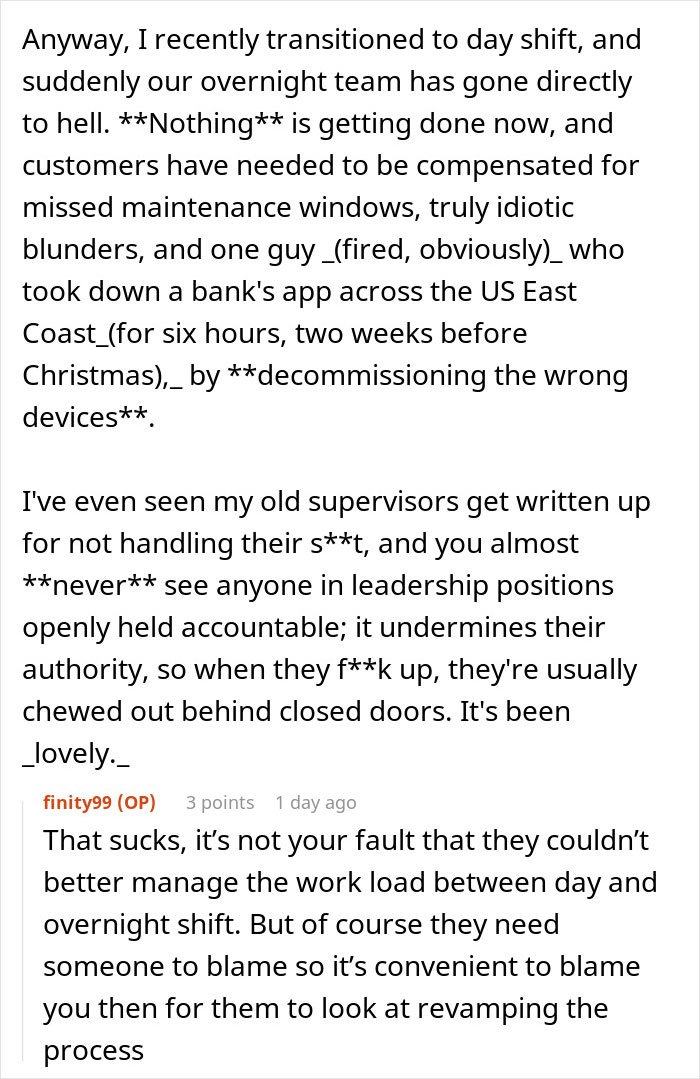In an ideal 9-to-5 job, you’d come in at exactly 9 o’clock and punch out at 5. However, the reality is different for many people. According to the International Labor Organization (ILO), 22% of workers worldwide work excessively long hours without extra compensation. And this holds true in some white-collar jobs more than others.
One employee in the finance sector used to work 70-75 hours a week, yet got no appreciation from their boss. As a cautionary tale to other overachievers, they shared their story online. “Lesson definitely learnt that you owe nothing to your workplace,” the disgruntled employee wrote.
An employee used to work 70-75 hours a week, yet still got no appreciation from the boss

Image credits: ckstockphoto/Envato (not the actual photo)
The boss even called them inefficient and threatened to replace them with AI
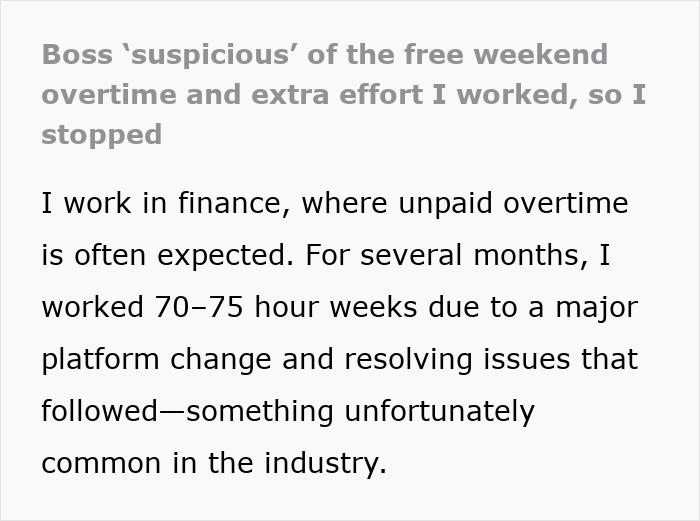
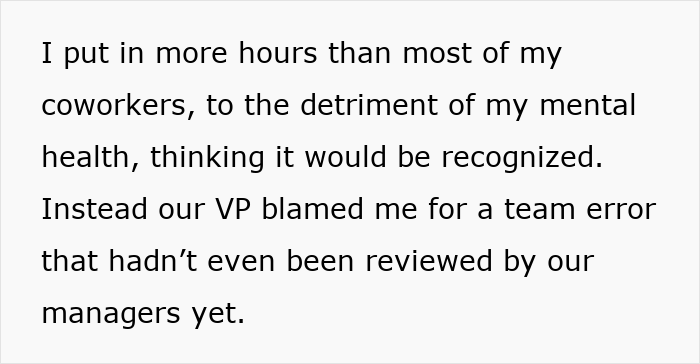
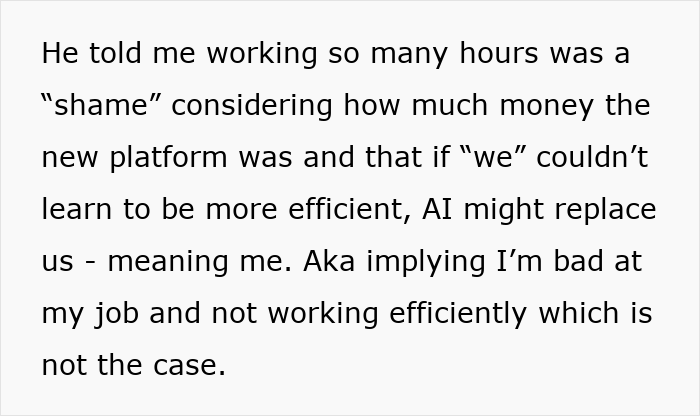
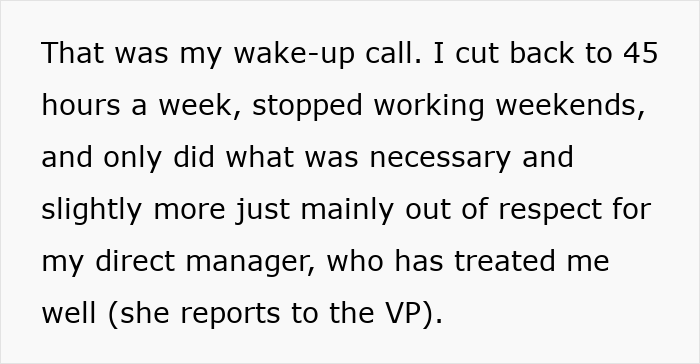
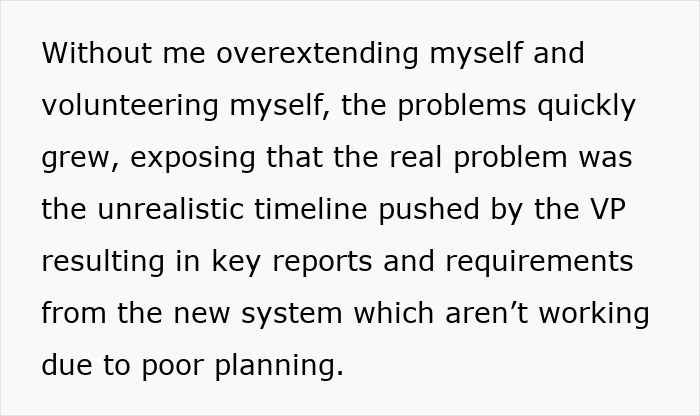

Image credits: GaudiLab/Envato (not the actual photo)
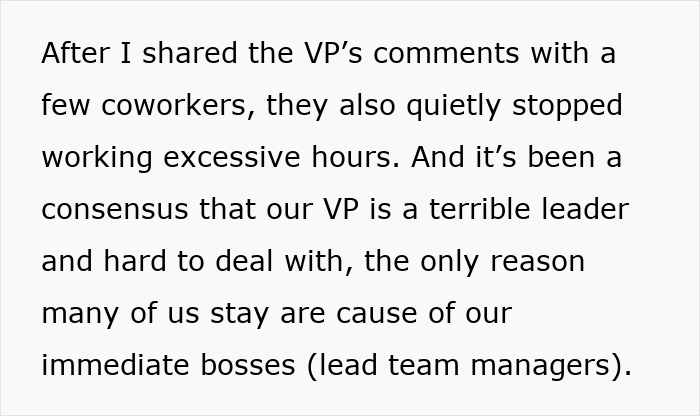
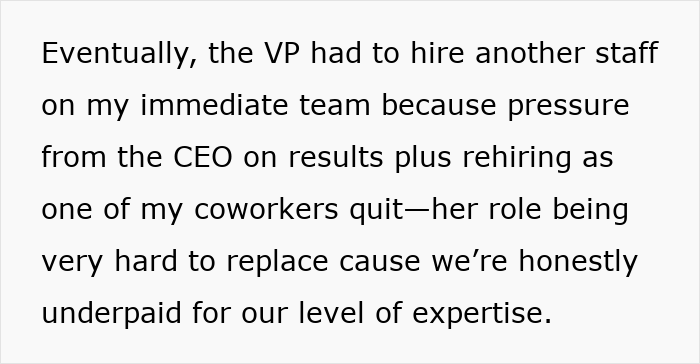
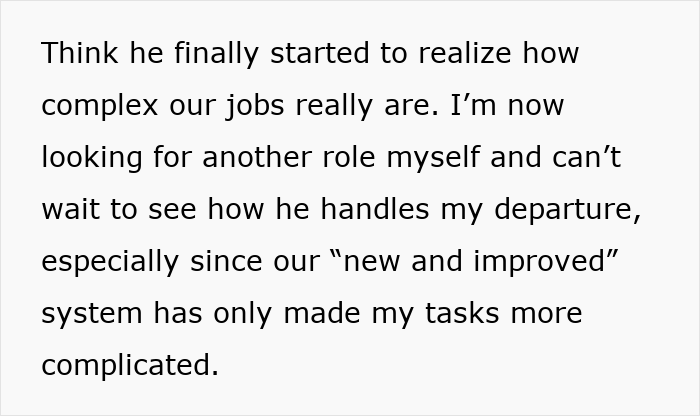
Image credits: finity99
Many employees work overtime, but they have to be compensated for it
Who among us hasn’t put in some extra hours at work? Whether to get that promotion, to save up for that dream vacation, or to splurge on a silly whim, most of us have had to push harder at least for a week or two.
The standard workweek in the U.S. and much of the Western world is 40 hours a week. According to the U.S. Fair Labor Standards Act (FLSA), a worker receives compensation if their working hours exceed the 40-hour-a-week mark.
Most companies pay their workers double the amount per overtime hour. The law states that employers must pay at least 1.5 times an employee’s regular pay rate for any extra hours.
However, a lot of the time, employees actually don’t get compensated for the extra work they do. One UK study has found that the average employee clocks in 215 extra hours a year. What’s bad is that almost half of them are unpaid.
Working more than 50 hours a week can have negative consequences on our cognitive abilities
While working overtime may earn us more money or get us in good graces with the boss, it can have detrimental effects on our health. Multiple studies show that working more than the standard 40 hours a week negatively impacts our brain, heart, and mental health.
In 2015, researchers from University College London found that those who worked 55 hours per week or more had a 13% greater risk of heart attack. What’s more, such work hours also contributed to a 33% higher likelihood of suffering a stroke, compared to workers whose workweek was 35-40 hours a week.
This year, researchers in South Korea studied how overwork impacts healthcare workers, some of whom worked more than 52 hours a week.
The researchers noticed changes in the brains of overworked medical professionals: impaired memory, decision-making, planning, and problem-solving. Some changes could even affect our emotional stability, increase anxiety, and make it harder to interpret social cues.
A 2024 Canadian study revealed that those working unpaid overtime were more likely to report stress and burnout. Interestingly, men (84%) were more likely to report burnout than women (52%). Yet women (90%) were more likely to say they’re stressed than men (85%).
There’s a culture of unpaid overtime that many company higher-ups cultivate
There’s no denying that we live in a time when hustle culture is glorified. Even this story illustrates how working overtime is expected in certain white-collar jobs, and the words “work-life balance” are not in some companies’ vocabularies.
A recent UK poll has found that 39% of business leaders think it’s necessary or acceptable for employees to work beyond their contracted hours. Another survey by HiBob asked employees what they think about overtime, and 55% of the respondents admitted that personal sacrifices in time or convenience should be expected if they want to earn raises or promotions.
People consultant at AfterAthena Jade McEvoy says that cultivating such a culture may cost companies over time. “Treating overtime as the norm can contribute to an unhealthy work culture, diminish overall well-being and harm the company’s reputation.”
“Stop working for free! 75 hours a week is wild”: People in the comments didn’t hide their irritation





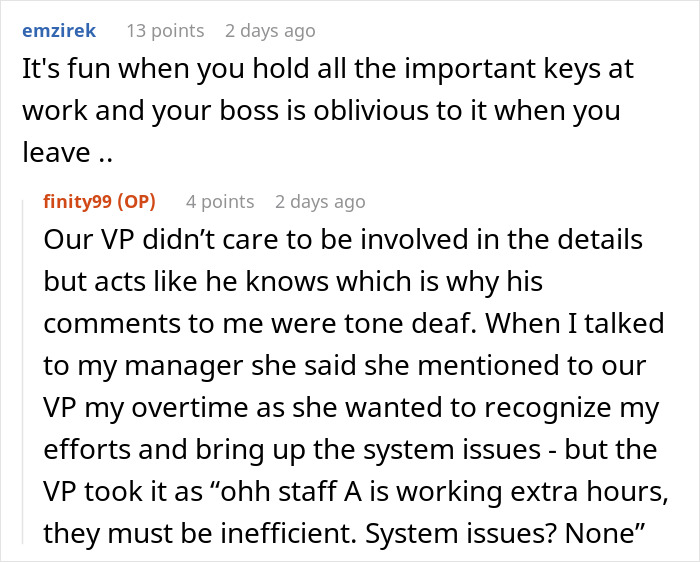

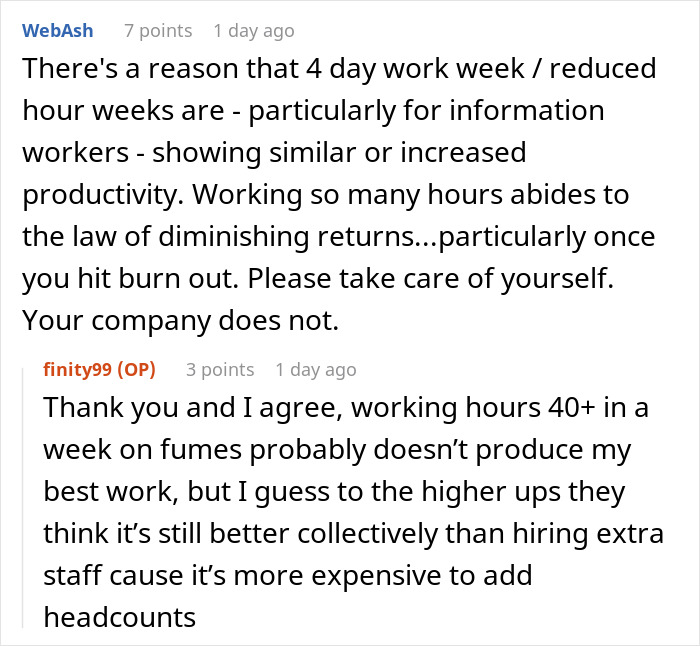

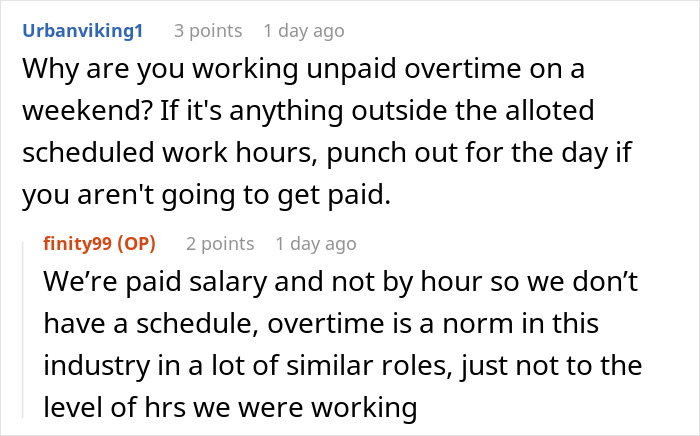

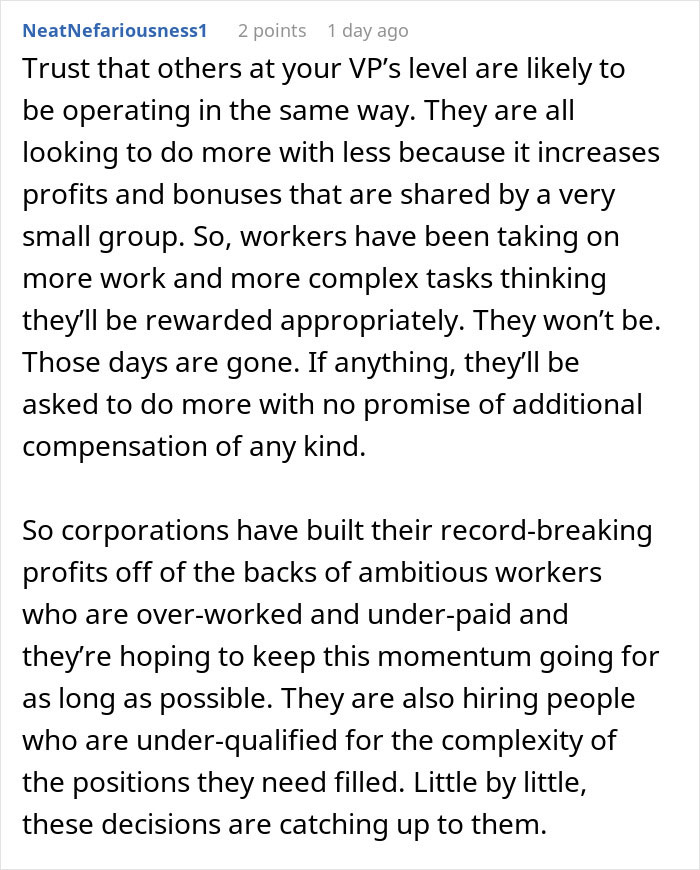
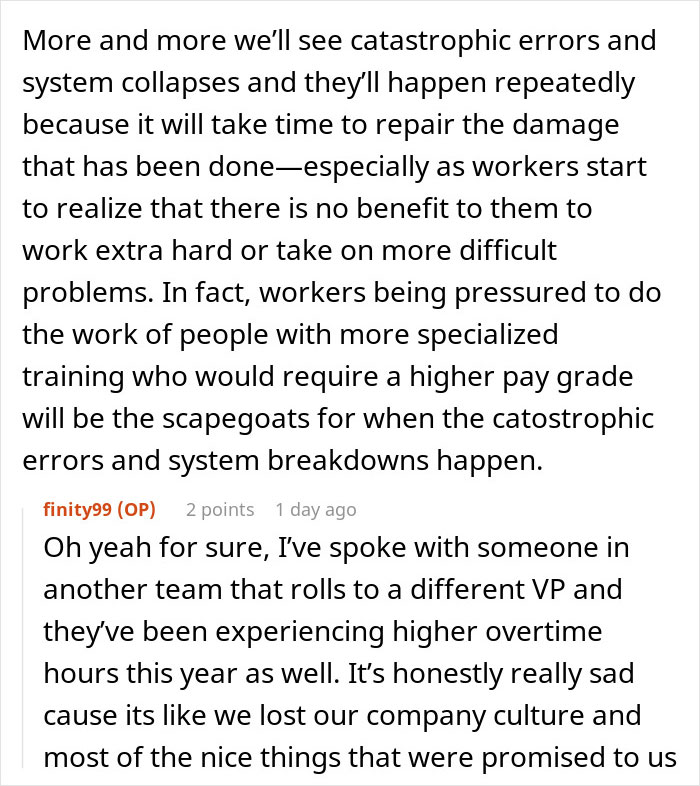



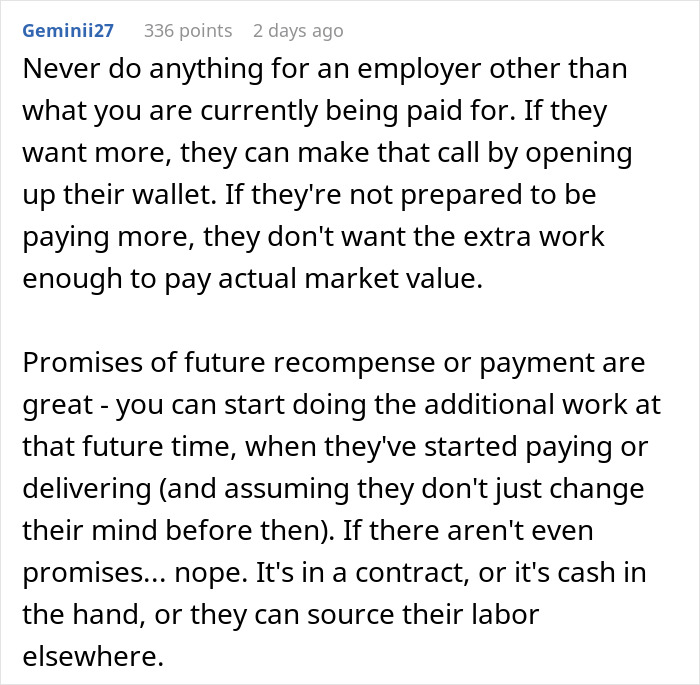
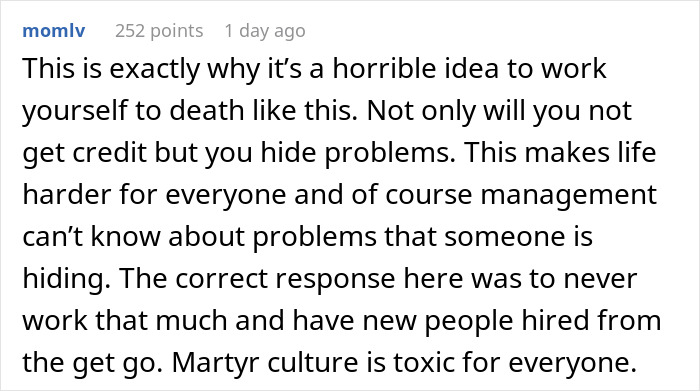







This story isn’t one-of-a-kind; many others have also worked extra hours and gotten no love for it
